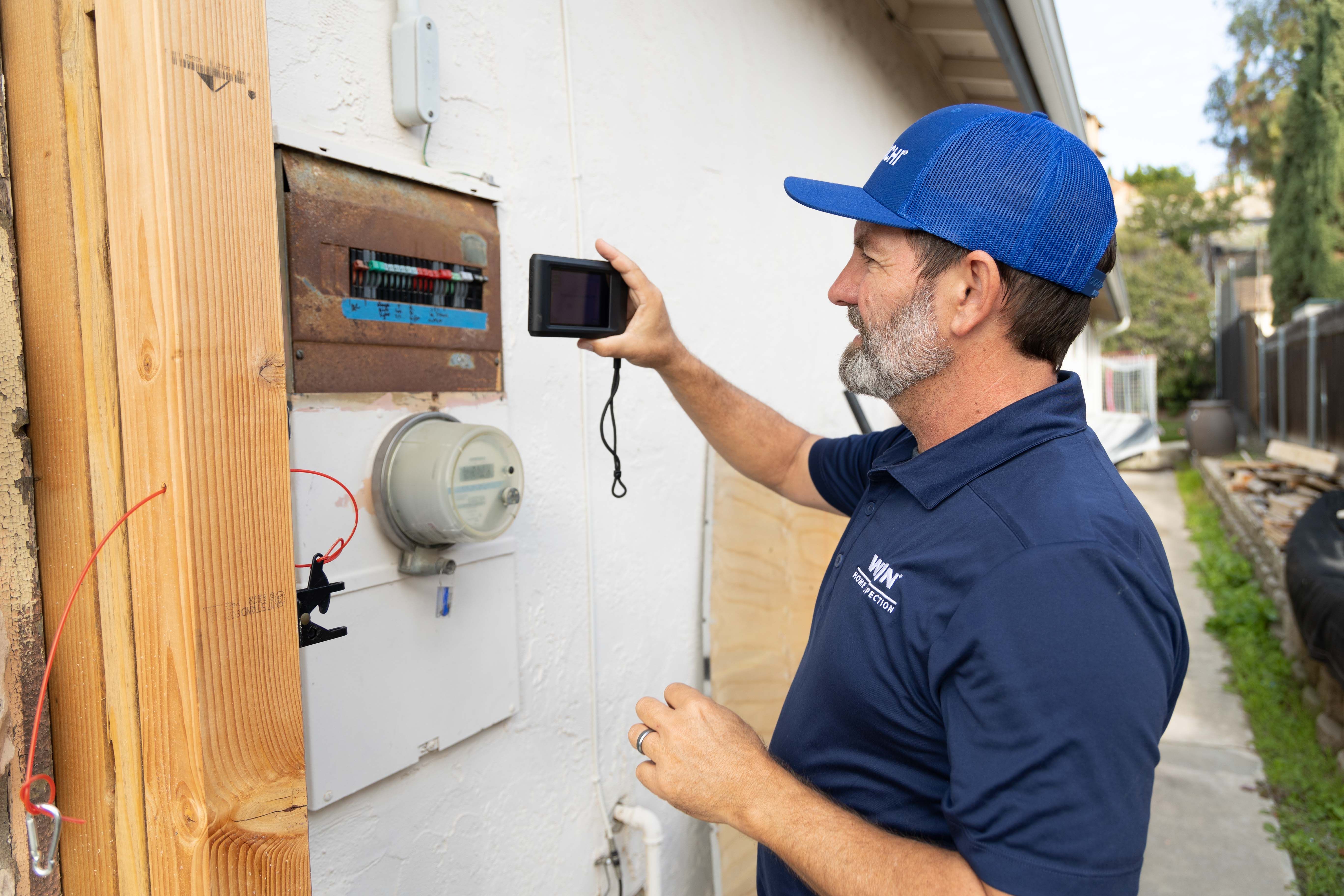One of the most common questions that comes up during the home-selling process is who pays for a home inspection. A home inspection is an important part of a real estate transaction because it reveals the actual condition of the home and can help a buyer decide whether to purchase a property or not. In addition, a home inspection helps buyers, sellers, and real estate agents build trust with a seller and facilitates a smoother transaction.
In most U.S. real estate deals, a home buyer pays for a home inspection as part of their due diligence before making a purchase decision. In some cases, however, the cost of a buyer’s home inspection may be partially or fully covered by the seller, depending on the terms of the negotiation. In addition, a seller may pay for their own pre-listing home inspection.
This guide explains this standard practice in depth, including instances where exceptions may arise. Let’s dive in.
When the Home Buyer Pays
For buyers, a home inspection ensures that they’re fully aware of a home’s condition. It helps uncover hidden problems (if any) with a home that may not be visible during viewing. These issues may include:
- Faulty electrical system
- Foundation cracks
- Leaky pipes
- Roof damage
- Mold
- Pest infestation and/or damage
If the inspection reveals serious issues like these or others, the buyer can use that information to either back out of the deal or negotiate with the seller for credit or repairs.

When the Seller Might Pay for an Inspection
Sellers can also arrange for a pre-listing inspection. This type of inspection takes place before the seller officially lists the property. It’s a proactive way for sellers to identify and address problems prior to listing, which can mean a higher listing or offer price, a smoother sales transaction, and increased buyer interest.
When the seller receives the inspection report, they can use the findings to address major issues at their own pace. A pre-listing inspection can also make the property more attractive because it shows transparency to buyers.
How Home Inspection Findings Can Influence Negotiations
Since a home inspection is part of a buyer’s due diligence, the buyer typically pays for it. If the inspection report reveals issues with the home, the buyer can back out of the contract if it includes a home inspection contingency. Or they can use the findings as leverage during negotiations.
For instance, the buyer can ask the seller to lower the home’s sale price to account for the cost of repairs. Alternatively, they can request the seller to repair the issues before closing. In some cases, the seller may offer a cash credit at closing to help the buyer cover the cost of repairs.
If the seller agrees to any of these requests, it’s usually because they want to demonstrate good faith and expedite the deal. In other cases, it may be because buyers have plenty of options, so a seller may be willing to make a compromise to close the deal more quickly.
To be on the safe side, buyers should work with a professional real estate agent who can lead negotiations. An experienced agent will know what a realistic request is according to local market conditions.

What About Additional Inspection Services?
A standard home inspection may not provide sufficient information for the buyer to make a reliable purchasing decision. Standard home inspections typically check for damage, malfunctions, and safety hazards to determine the overall condition of the home. It covers a home’s main systems and structures, such as:
- Foundation
- Doors
- Electrical
- Windows
- HVAC (heating, ventilation, and cooling)
- Plumbing
- Roof
Depending on the type of home and the typical conditions in the region, specialized inspections may be advised. These types of inspections uncover issues that may not be visible during a walkthrough or even with a standard home inspection. They may include tests for:
- Mold
- Radon gas
- Water quality
- Sewer or septic conditions
- Termite damage
- Wind mitigation
Buyers should select additional services based on potential issues and their personal health needs. If they’re unsure about which services to select, they should consult with their inspectors, as they are familiar with the area. Buyers can also add services during the inspection if the inspector suggests them based on the initial walkthrough of the home.
Since these tests are generally considered add-ons, they can increase the cost of a home inspection. However, repairs can be even more costly, and health problems associated with issues like mold may be far more expensive.

Use a Reliable Home Inspection Company
A home inspection is a crucial part of a buyer’s due diligence. It helps them fully understand the condition of the home they wish to purchase, beyond the property’s superficial appearance. Buyers must understand how well its systems are functioning and the issues that an attractive home may have, problems that even sellers might not be aware of. That’s why hiring the services of a reliable home inspection company like WIN Home Inspection is important.
At WIN, we go the extra mile after inspecting a home. We help buyers understand the findings by providing context and explaining terms in simple language. We also offer post-inspection support, so our clients can reach out to us for advice or clarification regarding the inspection report.
Get in touch with us today with any questions you may have or to schedule an inspection.
Home Inspection Payment FAQs
1. Do sellers receive a copy of the home inspection report?
Generally, no. Since the buyer pays for a home inspection, the report belongs to them. The buyer can choose to share the report with the seller or not. The same rule applies to a seller’s pre-listing inspection. The seller may share the report with the buyer to show transparency.
2. What is the biggest red flag in a home inspection?
Buyers should be cautious about proceeding with a home purchase if “red flags” or serious issues are found during a home inspection, including:
- Roof problems
- Foundation cracks, water damage, or other structural issues
- Mold
- Termite damage or infestation
- Plumbing issues
- Asbestos or lead paint in older homes
- Electrical problems
- HVAC concerns
3. What does it mean if a seller lists a home “as-is”?
“As is” means that the home is sold in its current condition, and the seller won’t make repairs should a home inspection reveal issues.
4. Can I attend an inspection?
Yes, buyers and real estate agents are allowed to accompany the home inspector. The inspector will point out home details, locations of items such as circuit boxes, and any problems that may be present. Sellers should ensure the property is accessible for the inspection process, but remain off-site otherwise.
Get the Latest Insights!
Sign up to stay up to date with latest tips, trends and updates from WIN.













